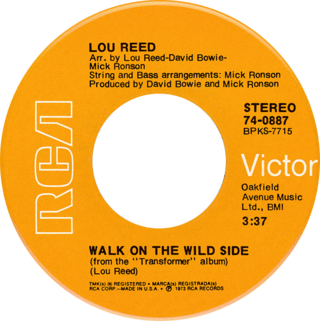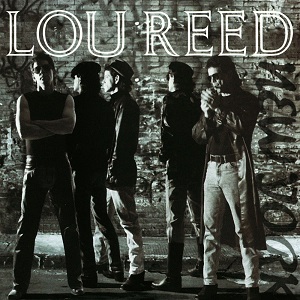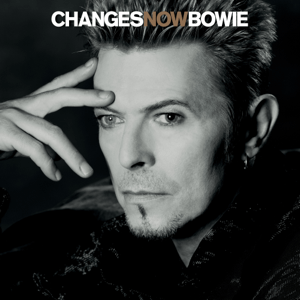
Lewis Allan Reed was an American musician and songwriter. He was the guitarist, singer, and principal songwriter for the rock band The Velvet Underground and had a solo career that spanned five decades. Although not commercially successful during its existence, the Velvet Underground came to be regarded as one of the most influential bands in the history of underground and alternative rock music. Reed's distinctive deadpan voice, poetic and transgressive lyrics, and experimental guitar playing were trademarks throughout his long career.

Transformer is the second solo studio album by American recording artist Lou Reed. Produced by David Bowie and Mick Ronson, the album was released on November 8, 1972 by RCA Records. It is considered an influential landmark of the glam rock genre, anchored by Reed's most successful single, "Walk on the Wild Side", which touched on controversial topics of sexual orientation, gender identity, prostitution and drug use. Although Reed's self-titled debut solo album had been unsuccessful, Bowie had been an early fan of Reed's former band the Velvet Underground and used his fame to promote Reed, who had not yet achieved mainstream success.

The Smithereens are an American rock band from Carteret, New Jersey. The group formed in 1980 with members Pat DiNizio, Jim Babjak, Mike Mesaros, and Dennis Diken. This original lineup continued until 2006, when Mesaros left the band and Severo Jornacion took over on bass guitar until Mesaros' return in 2016. After DiNizio died in 2017, the band continued performing live shows as a trio with various guest vocalists.

"Dancing in the Street" is a song written by Marvin Gaye, William Stevenson, and Ivy Jo Hunter. It first became popular in 1964 when recorded by Martha and the Vandellas whose version reached No. 2 on the Billboard Hot 100 chart for two weeks, behind "Do Wah Diddy Diddy" by Manfred Mann and it also peaked at No. 4 on the UK Singles Chart following a rerelease in 1969. It is one of Motown's signature songs and is the group's premier signature song.

"Walk on the Wild Side" is a song by American rock musician Lou Reed from his second solo studio album, Transformer (1972). It was produced by David Bowie and Mick Ronson and released as a double A-side with "Perfect Day". Known as a counterculture anthem, the song received wide radio coverage and became Reed's biggest hit and signature song while touching on topics considered taboo at the time, such as transgender people, drugs, male prostitution, and oral sex.

Sally Can't Dance is the fourth solo studio album by American rock musician Lou Reed, released in September 1974 by RCA Records. Steve Katz and Reed produced the album. It remains Reed's highest-charting album in the United States, having peaked at #10 during a 14-week stay on the Billboard 200 album chart in October 1974. It is also the first solo Lou Reed album not to feature any songs originally recorded by Reed's earlier band, the Velvet Underground, as well as the first of Reed's solo studio albums to be recorded in the United States. The album art was designed by noted Fillmore and Broadway poster artist David Edward Byrd and was one of the few album covers he ever designed.

Coney Island Baby is the sixth solo studio album by American rock musician Lou Reed, released in december 1975 by RCA Records.

New York is the fifteenth solo studio album by American musician Lou Reed, released in January 1989 by Sire Records.

The Blue Mask is the eleventh solo studio album by American rock musician Lou Reed, released in February 1982, by RCA Records. Reed had returned to the label after having left Arista Records. The album was released around Reed's 40th birthday, and covers topics of marriage and settling down, alongside themes of violence, paranoia, and alcoholism.

"Queen Bitch" is a song by the English singer-songwriter David Bowie. It was originally released on his 1971 album Hunky Dory before appearing as the B-side of the single "Rebel Rebel" in the United Kingdom in early 1974. Co-produced by Bowie and Ken Scott, the lineup consisted of the musicians who would later become known as the Spiders from Mars: Mick Ronson, Trevor Bolder and Mick Woodmansey.

Rock 'n' Roll Animal is a live album by American musician Lou Reed, released in February 1974 by RCA Records. In its original form, it features five songs, four of which were initially recorded by The Velvet Underground. Reed's band included Pentti Glan (drums), Prakash John (bass), Ray Colcord (keyboards), and Dick Wagner and Steve Hunter (guitars).

Magic and Loss is the sixteenth solo studio album by American rock musician Lou Reed, released on January 14, 1992, by Sire Records. A concept album, it was Reed's highest-charting album on the UK Albums Chart, peaking at No. 6.

Songs for Drella is a 1990 studio album by Lou Reed and John Cale, both formerly of the American rock band the Velvet Underground; it is a song cycle about Andy Warhol, their mentor, who had died following routine surgery in 1987. Drella was a nickname for Warhol coined by Warhol superstar Ondine, a contraction of Dracula and Cinderella, used by Warhol's crowd but never liked by Warhol himself. The song cycle focuses on Warhol's interpersonal relations and experiences, with songs falling roughly into three categories: Warhol's first-person perspective, third-person narratives chronicling events and affairs, and first-person commentaries on Warhol by Reed and Cale themselves. The songs, in general, address events in their chronological order.

The discography of American rock band Butthole Surfers consists of eight studio albums, four extended plays (EP), two live albums, three compilation albums, one video album, and eight singles. Formed by Gibby Haynes and Paul Leary in San Antonio, Texas, the group signed with the Alternative Tentacles label in 1981. Butthole Surfers' eponymous debut EP was released two years later. The band added drummers King Coffey and Teresa Nervosa in 1983, moved to the Touch and Go label the following year, and released their debut full-length album, Psychic... Powerless... Another Man's Sac.

American rock musician Lou Reed released 22 studio albums, 17 compilation albums, 15 live albums, six video albums, 46 singles, 16 music videos, and one box-set.

The Earthling Tour was a 1997 concert tour by English musician David Bowie, in promotion of his album Earthling. The tour started on 7 June 1997 at Flughafen Blankensee in Lübeck, Germany, continuing through Europe and the Americas before concluding in Buenos Aires, Argentina on 7 November 1997.

Canadian indie pop duo Tegan and Sara have released ten studio albums and thirteen singles. They released their first album, Under Feet Like Ours, independently in 1999. Their first major release was This Business of Art, released in 2000 on Vapor Records. This album contained their debut single, "The First".

Paul Simon is an American singer-songwriter who gained recognition first as a member of the folk rock duo Simon & Garfunkel, with Art Garfunkel, from whom he split in 1970. He went on to have success as a solo musician, but occasionally collaborated with other artists including Garfunkel. He has released singles as well as studio, live, and compilation albums. His music career has spanned over 60 years. He started recording music in the 1950s. His most recent album, Seven Psalms, was released on May 19, 2023.
Rick Wakeman is an English keyboardist, composer and songwriter, most known as the keyboard player for progressive rock group Yes. His solo albums have sold over 50 million copies.

ChangesNowBowie is an album composed of material recorded in live sessions in 1996 by English musician David Bowie. Initially released for streaming on 17 April 2020, the album also had a limited release for Record Store Day, 29 August 2020, as both an LP and CD. The album contains a set of recordings initially recorded for a BBC broadcast for Bowie's 50th birthday.



















